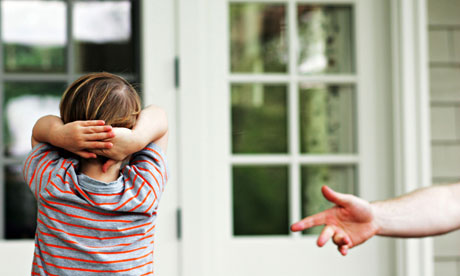
The American Psychiatric Association (APA) is suggesting a significant change to how autistic spectrum disorders are diagnosed – advocating doing away with the label Asperger syndrome. It's caused some debate among parents, adults who have an autistic spectrum disorder and psychiatrists. In the UK Nice is also revising its guidelines – and may well take the APA's decision into account.
What are autistic spectrum disorders?
The National Autistic Society (NAS) uses this definition: "Autism is a lifelong developmental disability that affects how a person communicates with, and relates to, other people and the world around them." The spectrum tag means that the condition affects people differently. Asperger syndrome, named after the psychiatrist Hans Asperger, has been recognised as overlapping with children on the autistic spectrum. People with Asperger syndrome are likely to have average or above average intelligence, a job, relationships and various levels of independence, but may also struggle with some of the problems people with autism have, such as poor coordination.
What are the characteristics of ASD?
People with autism have difficulty with social communications; they may not understand how to have a chat and be very literal in what they say, according to the NAS. They wouldn't understand the phrase "he has a chip on his shoulder", for instance. They will also not understand being teased or the emotional exchange in conversations. They have problems with picking up social cues and can either withdraw from people or seem clumsy in their interactions (eg no sense of personal space or being unable to make eye contact). They may find it hard to have friendships. They also struggle with "social imagination" – being able to interpret what people mean and feel, and what might happen next. Many people with autism need routines – unpredictability is upsetting.
There can be physical problems too such as poor coordination, an over- or under-sensitivity to any smells, noises, touch, taste or lights. They may be less aware of what their bodies are doing and so find it harder to balance (sometimes rocking on their feet to avoid toppling). They may have repetitive speech and behaviour and be fixated by rituals.
Things that parents notice in their children are that they are often slow to talk (not starting until after two), and when they do talk they may use a sing-song or robotic voice. They may have trouble making eye contact, don't do imaginative play and become disturbed by routine changes.
Does it matter what the APA says?
The APA publishes a Diagnostic and Statistical Manual – the bible for psychiatrists. In the UK psychiatrists don't always follow it but it may influence them. The APA says that Asperger syndrome is not a distinct condition and it is best for autism to be one diagnostic category with three severity levels, defined by how much support the person needs. For the first time it includes the symptoms of sensitivities to sound, light and touch etc.
The APA says that it will make it more likely that people with autism will be correctly diagnosed – currently there is concern that some children are undiagnosed.
What causes it?
One in 100 people has autism, says the NAS. No one knows what causes it, but there are many myths. Genetics may increase the risk (if one child has the condition there is a 5% risk of a sibling having it) and some environmental causes (a mother having an infection during pregnancy, maternal smoking and a father over 40 years of age). It is more common in boys.
When should I see my doctor?
If you are worried at all by your child's development. But you should also look at autism.org.uk, the excellent website from the NAS.

